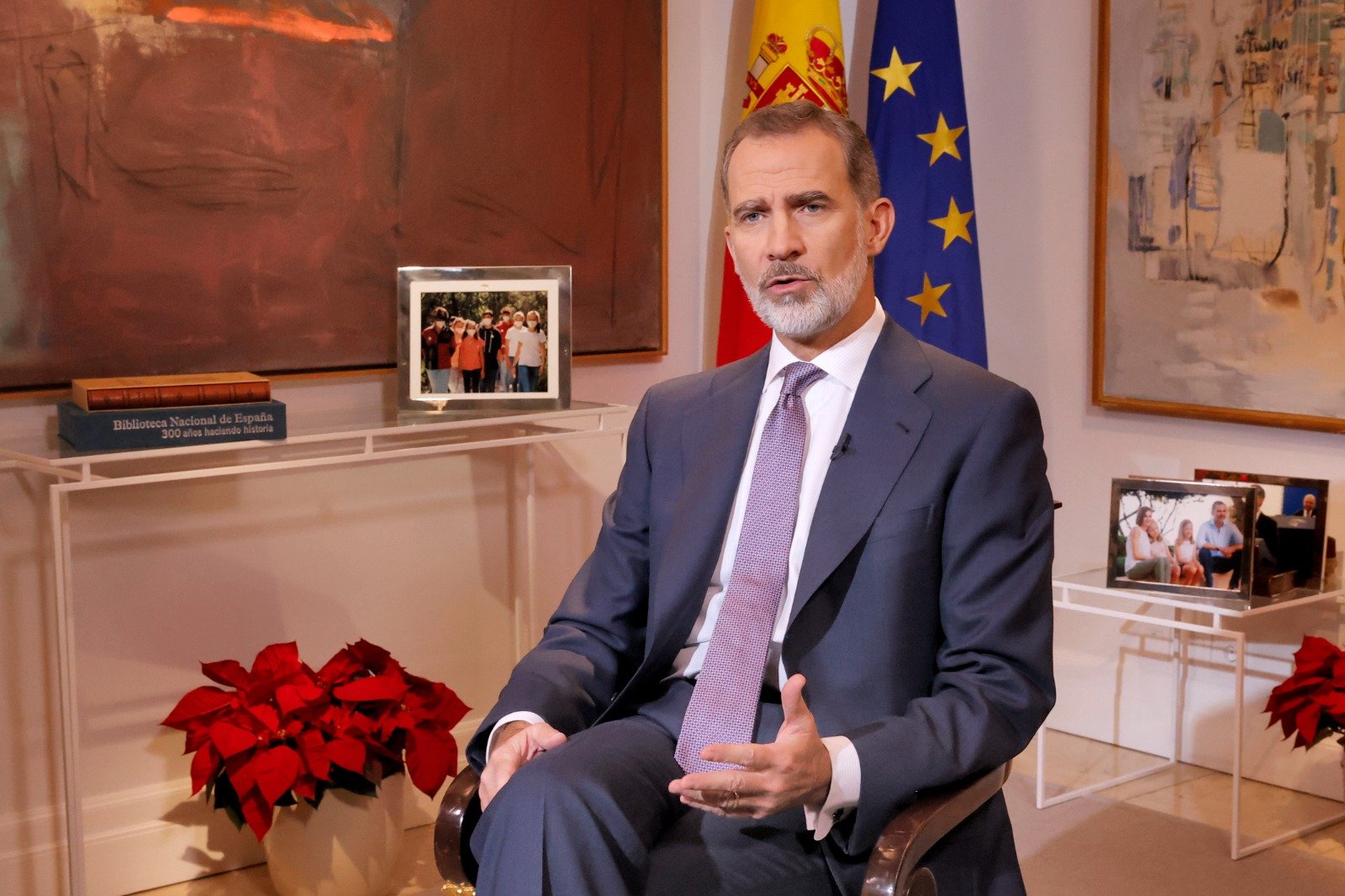In his usual Christmas Eve speech, Spanish king Felipe VI deliberately chose to ignore the situation of his father. There has been talk for weeks of a possible return of the former monarch Juan Carlos I to Spain. A homecoming was first scheduled for the Christmas holidays, and later situated in February. The point is, though, that the legal cases that the emeritus is facing in Switzerland and Spain are coming unstuck in their efforts to obtain evidence or due to his status of royal inviolability, not because he is innocent of corruption. In this context, the current head of state limited himself to making a general appeal to the "public and moral integrity" that the institutions and those who form them must have. He gave a 13-minute discourse, with a less baroque staging than on other occasions and no photos of the father, also discussing the pandemic and those affected by the volcanic eruption on La Palma, with whom he showed solidarity. But again, dodging Spain's territorial debate.
The playing field is what it is. Swiss prosecutor Yves Bertossa has closed his investigation into the 65 million euros, 100 million dollars, paid by Saudi Arabia to Juan Carlos I. The Spanish public prosecutors in the Supreme Court have been preparing to do the same for months. But the shelving of the case would not mean that he was innocent, but rather, that the laws protect him. And there is also the pending case before an English court, initiated by Corina Larssen, which hinges on whether or not the businesswoman and long-time consort of Juan Carlos is considered to be a member of the royal family (and if her residence is in Spain).
In his message from the hall of the Zarzuela royal palace, the son did not mention the emeritus king either directly or indirectly. The current monarch claimed that, in the "great task" ahead, "the institutions have the greatest responsibility." In this regard, Felipe VI defined the height of the bar: "We must always keep in mind the general interests and thinking of the citizens, their concerns, their worries, we must be permanently at their service and address their problems." And he added: "We must be in a position that is constitutionally appropriate for us; we must each assume our obligations; we must respect and abide by the laws and be an example of public and moral integrity."
In this context, the monarch defended that "understanding and collaboration are necessary attitudes that dignify the institutions and strengthen them, because they generate the trust of the citizens". Amid the climate of polarization in recent months, the Spanish head of state reiterated that "differences of opinion must not prevent consensus that will ensure greater stability, greater well-being in households and give the necessary peace of mind to families facing their future”.
The Constitution, against "bitterness"
As in previous speeches, Felipe VI recalled the transformation that has taken place in Spain during the last forty years of democracy. "The profound change in Spain in these more than four decades of democracy and freedom has been extraordinary and has not been the result of chance," he said. And as a symbol there is the Constitution of 1978, "with which we were fully integrated into modern Western democracies." The spirit of Spain's "Magna Carta", he continued, "calls us to unity in the face of division, to dialogue and not to confrontation, to respect in the face of bitterness, to the spirit of integration in the face of exclusion."
"The Constitution has been and is the mainstay of our progress, which has sustained our democratic coexistence in the face of the serious and grave crises of different types that we have experienced." Therefore, the head of state added, the constitutional text "deserves respect, recognition and loyalty."
Covid
Once again, the Christmas speech was marked by the pandemic. In the latest context, Felipe VI asserted "with all due prudence" that the situation has changed thanks to the high level of vaccination among Spaniards, a process with which "we can be especially satisfied." However, he noted that "once again there is rapid transmission and, therefore, the risk has not disappeared." That is why he asked his subjects to be careful, to protect themselves from taking "backward steps" and he dedicated a memory to the victims and gave gratitude to the medical staff. He also mentioned people who are in vulnerable situations, of whom there are now more, as well as referring to young people who have "difficulty finding a stable job."
"I sincerely believe that the challenges ahead represent a real crossroads for Spain," said the monarch, adding that despite everything, they also "represent an historic opportunity, even an obligation for us to update, to come up to the present and modernize our country, keeping ourselves firm in our democratic principles and in the values that inspire our coexistence”. The head of state also defended the European Union project, to which the future of Spain is tied, something that "the majority of Spaniards believe".
"The moment is difficult"
"The moment is difficult, of course, but to stop today is to fall behind, to go backwards," the king warned at the end of his speech. "We must move forward because history teaches us that the Spaniards have known how to react and overcome adversity," said Felipe VI. He concluded the Christmas message as always, with a greeting in each of the three main co-official languages: "Eguberri on, Bon Nadal, Boas Festas".

